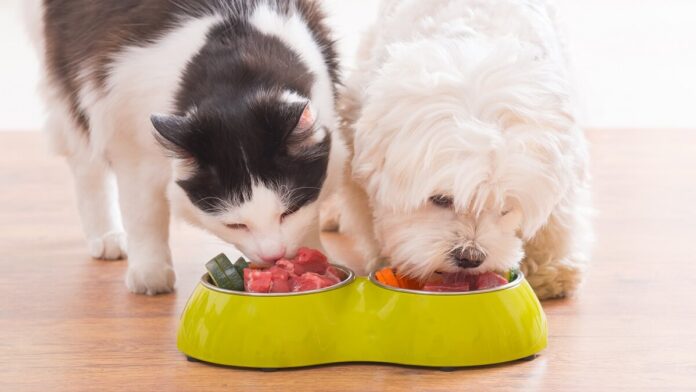Aussies love their pets. Each year, we spend around $17 billion feeding our furry friends. But a recent investigation has found Australia’s pet food industry has little to no regulation, and it’s leading to dire consequences.
Australians have one of the highest rates of pet ownership in the world. It’s estimated around 48 per cent of Aussie households own a dog and 33 per cent a cat.
We also spend a lot on our pets. RSPCA research shows we spent $33 billion on our pets in 2022, with around half of that going to our pets’ food. Dog owners spend the most on food, parting with an estimated $3218 each year.
You would think then, that the food we’re spending all this money on is high quality, or at least manufactured to some kind of standard. But you’d be wrong.
There is currently no legislation covering the manufacture of pet food in any of the states or territories. That’s no legislation regarding what goes into pet food, or any rules around labelling food with the correct ingredients.
Quality standards, so far, have been maintained by the manufacturers via a voluntary code of practice. Now, veterinarians are sounding the alarm as they see more and more pets presenting with potentially life-threatening symptoms linked to pet food they’ve eaten.
Veterinarian Dr Anna Tebb, who spoke to the ABC, says she saw three dogs last year who had all acquired vitamin D toxicity through their food.
“All three of them presented with increased thirst and increased urination,” she said.
“And a couple of them were also vomiting.”
She said two of the dogs recovered after a few weeks, but the other went into kidney failure and now has permanent kidney damage.
Mandatory rules needed
This topic is not new. Back in 2018, the federal government held a senate inquiry into pet food regulations in Australia, which came to similar conclusions, recommending a raft of changes to ensure pet food safety.
The inquiry was launched in response to a spate of dog deaths linked to the same brand of dog food, sold by Mars Petcare Australia.
However, six years later, none of the recommendations the inquiry made have been implemented. These included a mandatory industry standard for pet food ingredients and enforced recalls of pet foods that don’t meet this standard.
Dr Sara Zito, senior scientific officer at RSPCA Australia, says this is mainly because the federal government has largely passed the buck to the states and territories, which have done nothing so far.
“There’s been little substantial progress since the 2018 review, [which] is proof that national leadership on this matter is necessary,” she says.
“To achieve [minimum pet food standards] we need all the states and territories to adopt and implement effective pet food regulation that includes making the Australian Standard for the Manufacturing and Marketing of Pet Food (AS5812) mandatory.”
Industry (at least partially) on board
You may think pet food manufacturers would oppose any stringent regulation of their products, but for the Pet Food Industry Association of Australia (PFIAA) stronger rules mean a stronger pet food industry.
Carolyn Macgill, PFIAA executive officer, says members of her organisation have been pushing for stronger rules for years.
“I’m a pet owner – I have cats and dogs – and I would be horrified to think that, in good faith, I had bought a product that made my animals sick,” she says.
She said around 70 per cent of pet food manufacturers in Australia are members of PFIAA, and voluntarily adhere to the group’s standards – but that leaves 30 per cent who don’t.
“What we find is that if it’s a [PFIAA] member, they’ll respond to my request for an investigation [after an incident].
“And what we tend to see with non-members is that they don’t respond to that request. And because we have no pet food regulation at all, there is no-one with enforcement powers to mandate a recall of a product.”
PFIAA is calling on the federal government to enact national standards, and not leave it up to the states.
Should there be a national standard for pet food? Or are the states better equipped to handle it? Let us know what you think in the comments section below.
Also read: Emergency preparations you need to make if you’re a pet owner


There are 2 issues coming from this story in my opinion.
1. The States have done nothing….why do we even need state governments? It appears they are all incompetent.
2. Very ironic that vets are complaining about pet food manufacturers, vets themselves believe they are a law unto themselves. They charge exorbitant prices, will not write scripts to allow pet owners to source medication from alternative cheaper priced outlets and are constantly trying to extract further money from owners. They should be regulated themselves.